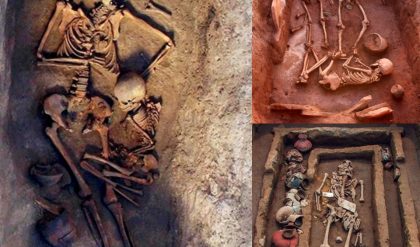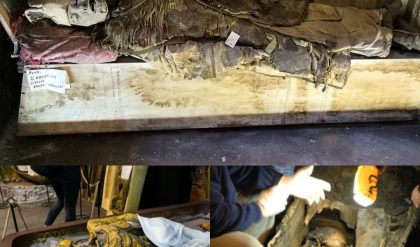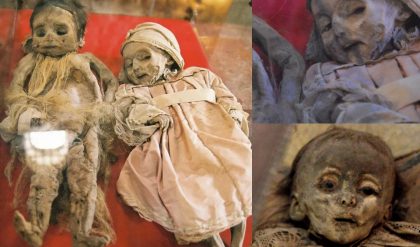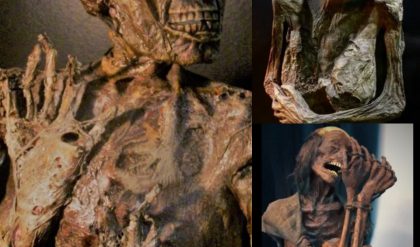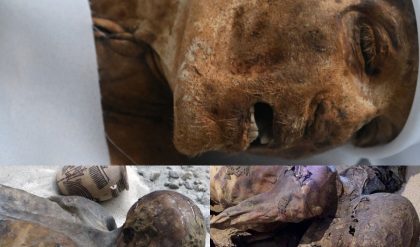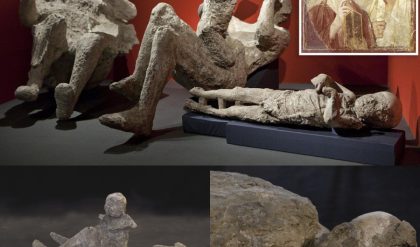The skeletons are laid out side-by-side, suggesting they were buried together, which could indicate a close relationship in life, possibly familial or romantic. The positioning, with one skeleton appearing to embrace the other, intensifies the emotional impact of the scene, hinting at a narrative of love or deep connection that transcends even death.

This burial scene could be of significant archaeological and anthropological interest. It provides insights into the burial practices and social relationships of the culture from which these individuals came. Such burials often prompt questions about the beliefs, rituals, and values of the people, as well as the specifics of their lives.
Researchers studying this site might analyze the positioning, the grave goods, if present, and the physical characteristics of the skeletons to glean more about their age, health, and cause of death. The context of the burial within the larger site could also reveal information about the historical and environmental conditions at the time.
This discovery holds not just scientific value but also a deeply human aspect, reminding us of the universal themes of life, death, and companionship that persist throughout human history.
